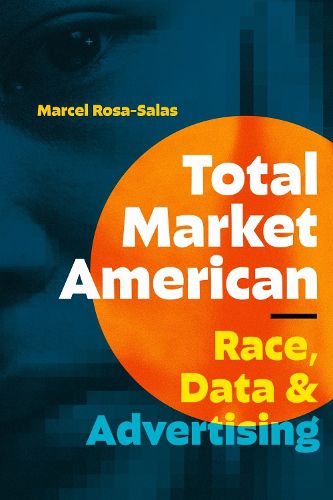Readings Newsletter
Become a Readings Member to make your shopping experience even easier.
Sign in or sign up for free!
You’re not far away from qualifying for FREE standard shipping within Australia
You’ve qualified for FREE standard shipping within Australia
The cart is loading…






In Total Market American, Marcel Rosa-Salas explores how US advertising reinforces racial categories for profit. Through ethnographic research at advertising agencies and key industry events, Rosa-Salas highlights advertising strategy as an influential commercial arena for racial theorizing closely linked to the forms of racial knowledge prevalent in government, academia, and business. Central to her analysis is what she calls the industry's "racial information system"-a network of practices, personnel, and technologies that institutionalize racial classification as both a predictive and persuasive tool with the aim of influencing consumer behaviors among Hispanic, Asian, and Black Americans. Within this information system, the "general market" is implicitly defined as both white and the average American while other racialized groups are classified as a "multicultural market" that sustains white normativity and monetizes racial difference. Amid demographic shifts, some brands claim to champion racial inclusivity through the rise of "total market" strategies, but Rosa-Salas shows that these techniques actually perpetuate a legacy of racial distinctions in US advertising, including within the classification algorithms that drive digital advertising and surveillance.
$9.00 standard shipping within Australia
FREE standard shipping within Australia for orders over $100.00
Express & International shipping calculated at checkout
Stock availability can be subject to change without notice. We recommend calling the shop or contacting our online team to check availability of low stock items. Please see our Shopping Online page for more details.
In Total Market American, Marcel Rosa-Salas explores how US advertising reinforces racial categories for profit. Through ethnographic research at advertising agencies and key industry events, Rosa-Salas highlights advertising strategy as an influential commercial arena for racial theorizing closely linked to the forms of racial knowledge prevalent in government, academia, and business. Central to her analysis is what she calls the industry's "racial information system"-a network of practices, personnel, and technologies that institutionalize racial classification as both a predictive and persuasive tool with the aim of influencing consumer behaviors among Hispanic, Asian, and Black Americans. Within this information system, the "general market" is implicitly defined as both white and the average American while other racialized groups are classified as a "multicultural market" that sustains white normativity and monetizes racial difference. Amid demographic shifts, some brands claim to champion racial inclusivity through the rise of "total market" strategies, but Rosa-Salas shows that these techniques actually perpetuate a legacy of racial distinctions in US advertising, including within the classification algorithms that drive digital advertising and surveillance.